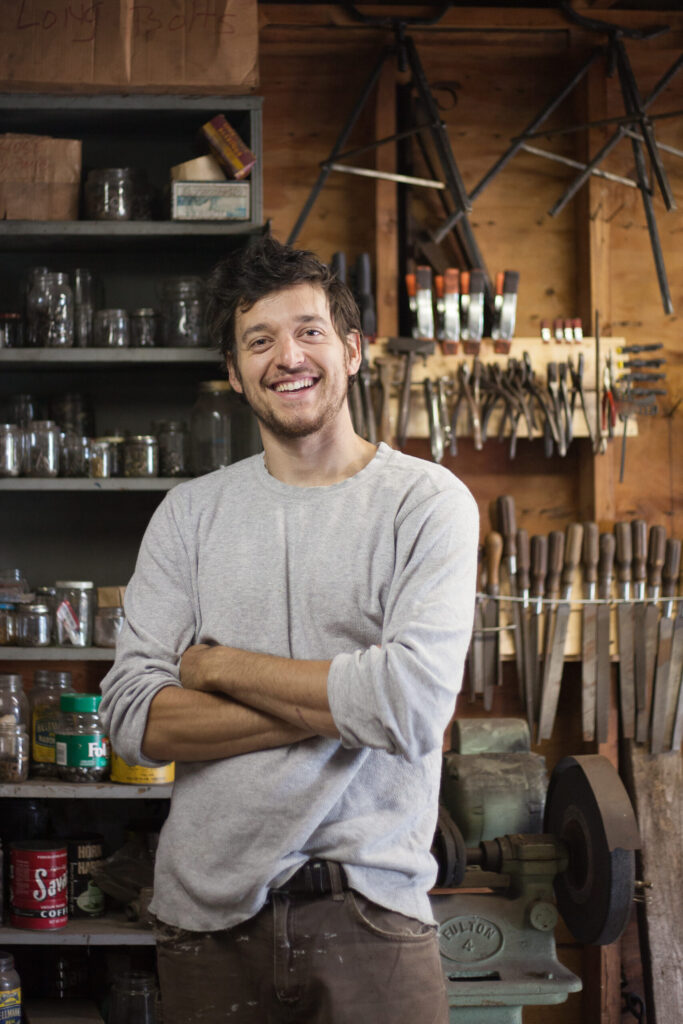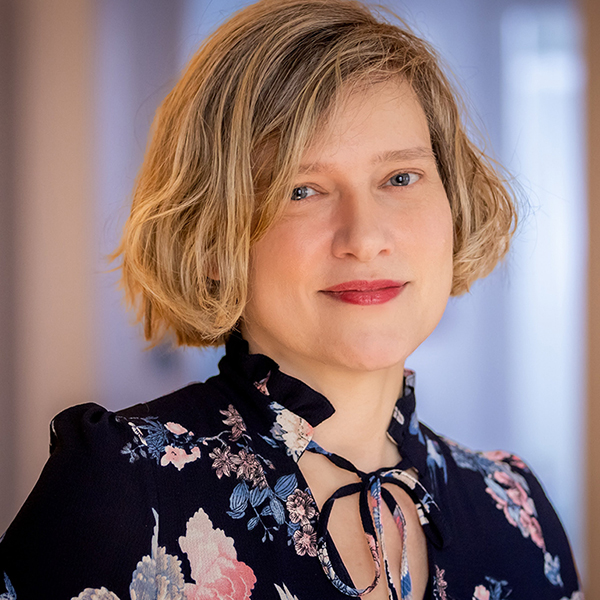Nicholas Wicks Moreau’s line of work is often a sure-fire conversation starter, sparking reactions like ‘Oh, whoa! What is that? That’s so cool!’
Moreau, BA&Sc’10, works as an artist blacksmith, fashioning music stands, personalized letter openers, custom gates, wall hooks and other products out of “mild steel.”
He doesn’t make cannons or replica armor worn by a Star Wars character, although he has fielded such requests.
The craft, which dates back to ancient times, is enjoying a revival, according to Moreau, who has written a how-to book on blacksmithing. The Everyday Blacksmith, which comes out in September, features a range of projects for blacksmiths who have acquired the basic skills of the craft.
His author byline is Nicholas Wicks, although former McGill lacrosse teammates will remember their captain as Nick Moreau.
It used to be that if you wanted to be a blacksmith, Moreau says, you had to find one who would teach you, which was difficult because there weren’t many around.

Now, there are so many more opportunities to learn blacksmithing, including YouTube videos, says Moreau. Acquiring the tools and making your own forge is also easier. “You can buy stuff online now. It’s just everything has made it more accessible so that someone can just take it up as a weekend hobby and not have to invest thousands of dollars.”
Neophytes, however, should brace themselves for a steep learning curve.
“With metalworking, because you have to work the metal while it’s hot and you have to do it by hand, you have to work very fast, but there’s a lot of technique involved,” Moreau says. “You’re really bad for a very long time and then you start getting better.”
It can also be dangerous – Moreau once got a metal speck lodged in his eye and has suffered burns.
His most popular product online is a customized letter opener. Music stands are probably the most unique thing he makes, Moreau says. “I think the music stands are really where the art and craft of blacksmithing for me kind of converge.”
The son of an artist and carpenter, Moreau grew up in Trumbull, Connecticut, northeast of New York City.
“I think going to McGill was the best decision I ever made in my life to this day,” he says.
“I had this idea that if I wanted to grow, I really had to get outside my comfort zone. To that point, I had never left the country. I had never really spent time in the city.”
He recalls sitting in the common room at Douglas Hall residence during his first week at McGill with students from Hungary, Mexico, Dubai and Israel. “That was just a random sample of the people on my floor. So it was so awesome to interact with people from all over the world that were very smart.”
He later headed to Scotland to do a master’s degree in ecological economics. Moreau, who always loved working with his hands, wanted a creative outlet in addition to his studies. He pursued a suggestion that he check out blacksmithing, which is still a vibrant craft in Scotland, and found a master blacksmith who took him on as an apprentice.
Back home in the States, Moreau started a blacksmithing hobby/small business using his grandfather’s tools and his great-grandfather’s anvil. His family had been working with metal for generations. His grandfather was a welder as was his great-grandfather, who ran Wicks Welding Shop in Queens, New York, and then a welding school during the Second World War. (His great-great grandfather wasn’t a welder, but he did work on the Statue of Liberty.)

Moreau juggled the business with his jobs in environmental conservation for several years. This past year, he began working full-time as a blacksmith. His business, Wicks’ Forge, is located on a farm near Portland, Maine.
When Moreau decided to do the book (he had already been writing how-to articles about his unorthodox line of work as a contributing editor for Popular Mechanics), he decided to reach out to other blacksmiths, each with their own areas of expertise, to contribute to the book. In all, 18 smiths were involved, showcasing a diverse range of projects. “I just thought it would be a better book,” Moreau explains.
He takes pride in “trying to figure out a way to give people access to beautiful handmade things that aren’t necessarily super expensive.” Although he is now a full-time blacksmith, Moreau doesn’t believe he has strayed from the values of his former career in environmental conservation. “It’s the same interest that I had doing environmental work.”
When someone purchases something that was handmade – whether it’s one of his carefully crafted musical stands or a cool mug created by a local potter – it likely won’t find its way into a landfill anytime soon.
“We used to [put more thought into material possessions] a long time ago, because you didn’t really have a disposable culture and now we do,” says Moreau. As he hammers pieces of hot metal into unique new objects, Moreau is doing his part to push back against that disposable culture.


